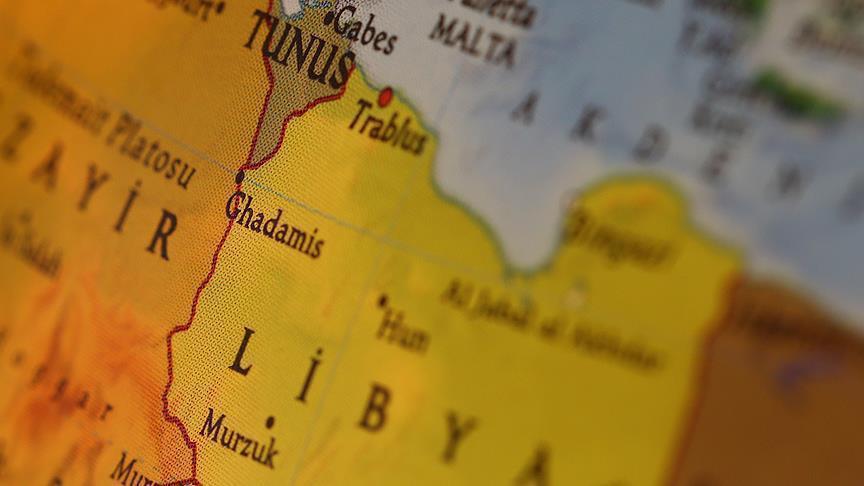Post-Gaddafi Libya plagued by conflict, political rift
Despite UN’s efforts to promote reconciliation, Libya remains torn between competing seats of power

By Mahmoud Barakat
TRIPOLI, Libya
Seven years since the death of longtime Libyan leader Muammar Gaddafi, the country remains plagued by dispute and conflict, with the UN struggling to mediate between its rival political camps.
Libya has been in a state of turmoil since a bloody rebellion in early 2011 -- ostensibly part of the "Arab Spring" uprisings -- ended with Gaddafi’s abrupt ouster and death after four decades in power.
House divided
Currently, two rival seats of power are vying for supremacy: an internationally-recognized national unity government based in Tripoli, and an “interim” government supported by a legislative assembly based in the eastern city of Tobruk.
Headed by Prime Minister Fayez al-Sarraj, the Tripoli government was established in early 2016. It came as the result of an agreement signed two months earlier in the Moroccan city of Skhirat between the Tobruk government and the General National Congress (GNC).
Now defunct, the GNC had served as Libya’s first post-Gaddafi legislative assembly. With its members elected by popular vote in July 2012, it assumed power from a transitional government one month later.
The GNC was formally dissolved in mid-2014.
Libya’s second seat of government -- based in the northeastern city of Al-Bayda near Tobruk and led by PM Abdullah al-Thinni -- is affiliated with strongman Khalifa Haftar, who was appointed “army commander” by the Tobruk assembly in 2015.
Fiercely opposed to the country’s Islamic-leaning political current, Haftar is said to enjoy the support of both neighboring Egypt and the United Arab Emirates (UAE).
Peace efforts
Late last year, on the sidelines of a UN General Assembly meeting in New York, UN envoy to Libya Ghasan Salame unveiled an updated version of a political “roadmap” for Libya’s future, a first draft of which had been proposed at the Skhirat talks.
The roadmap calls for presidential and parliamentary elections within one year and -- eventually -- holding a popular referendum on a new constitution.
“The action plan was not designed by me, but by the Libyans,” Salame was quoted as saying at the time. “They want an inclusive process; a way forward, which clearly defines stages and objectives.”
In the months that followed, Salame toured Libya to promote his plan, making stops in Tripoli, Benghazi and Misurata.
Paris, meanwhile, in an effort to break the logjam, hosted an international conference in May attended by al-Sarraj, Haftar, and Aguila Saleh (speaker of the Tobruk assembly), and a number of other Libyan officials.
The event was also attended by representatives from 19 countries, including the UN Security Council’s five permanent members, Turkey, Algeria, Morocco, Egypt, Tunisia, the UAE, Qatar and Kuwait.
The conference concluded with a final communique, known as the “Paris Declaration”, in which Libya’s rival political camps agreed -- in principle at least -- to establish a political framework with a view to holding elections in December of this year.
The eight-point document also called for the unification of Libya’s central bank, the establishment of a unified national army and the adoption of new electoral laws.
Ongoing conflict
More than three months since the Paris Declaration, however, Libya’s two main political camps remain locked in conflict.
Haftar’s forces, fighting on behalf of the Al-Bayda government, currently control the eastern part of the country, including Tobruk, Benghazi and Derna.
In June, Haftar’s forces retook the oil-rich cities of Sidra and Ras Lanuf -- both of which are located in Libya’s strategic oil crescent region -- after forces led by Ibrahim Jadhran, a former commander of Libya’s Petroleum Defense Guards, briefly captured them.
Accounting for an estimated 80 percent of Libya’s total oil production, the oil crescent stretches from Ras Lanuf in the east to the north-central city of Sirte and down to the southern Jufra district.
Meanwhile, forces loyal to the Tripoli-based unity government -- including the Misrata Brigades and some Tuareg militias -- remain in control of most of the country’s western and northwestern regions.
The GNC, meanwhile, along with the affiliated National Salvation Government led by Khalif al-Ghawil, still maintains a limited military presence in Tripoli despite the expiry of its mandate in 2014.
Anadolu Agency website contains only a portion of the news stories offered to subscribers in the AA News Broadcasting System (HAS), and in summarized form. Please contact us for subscription options.







